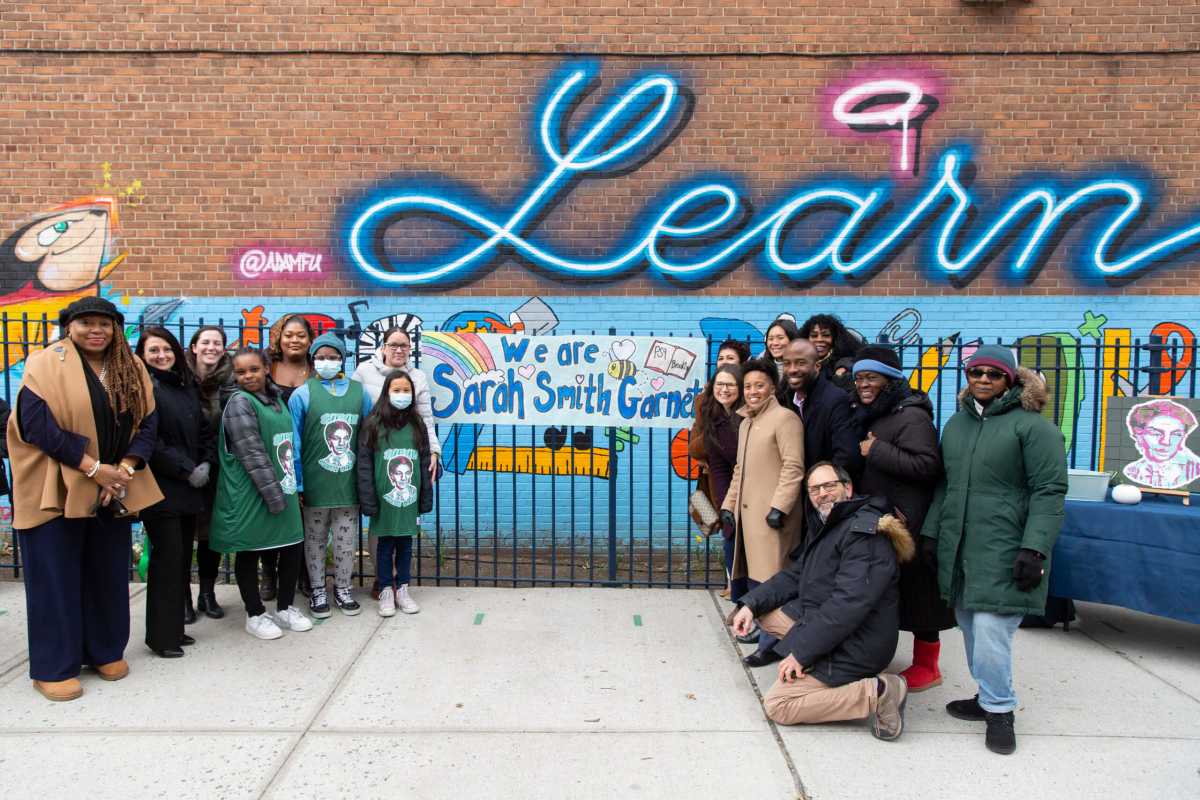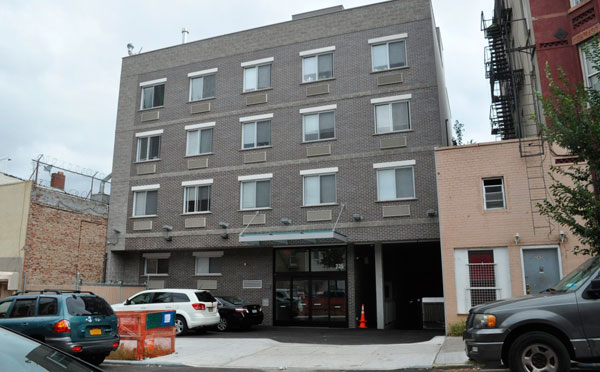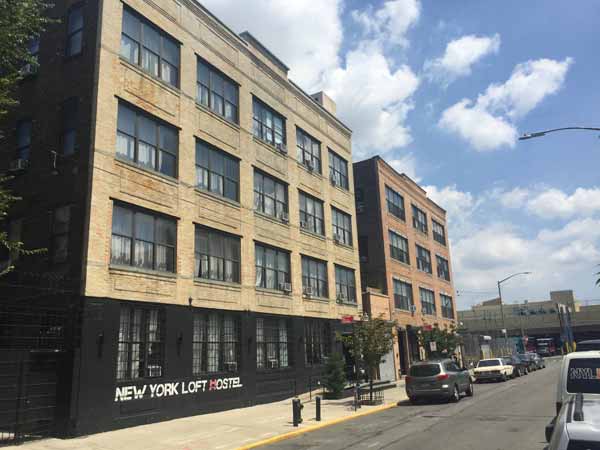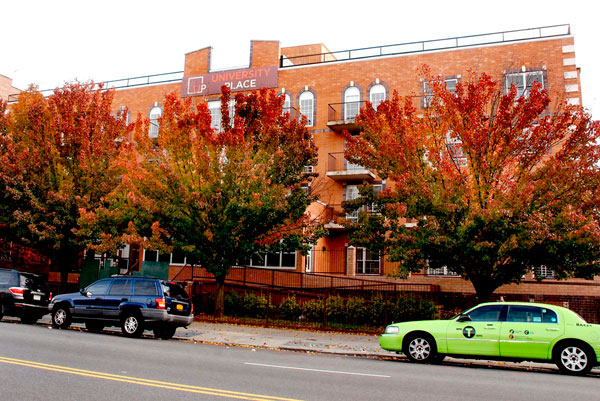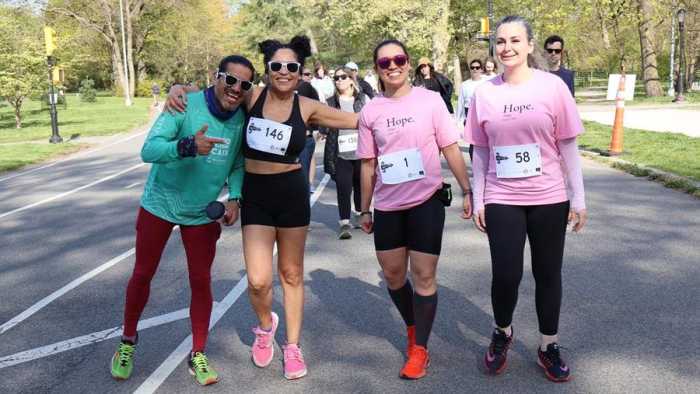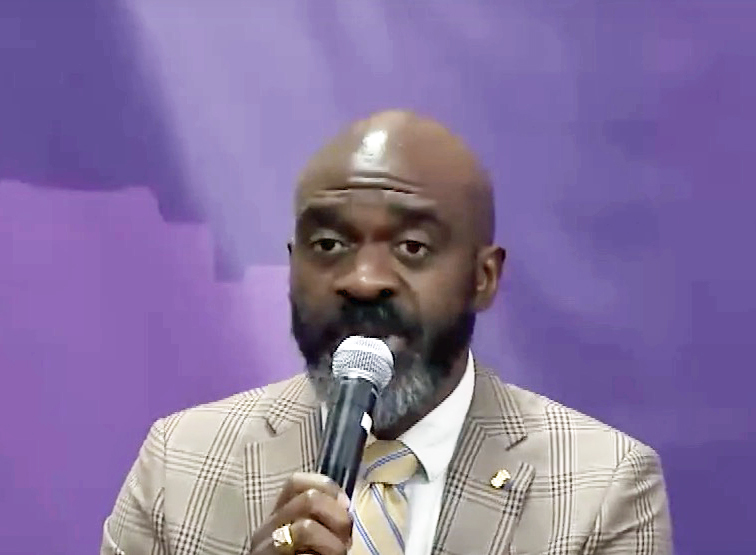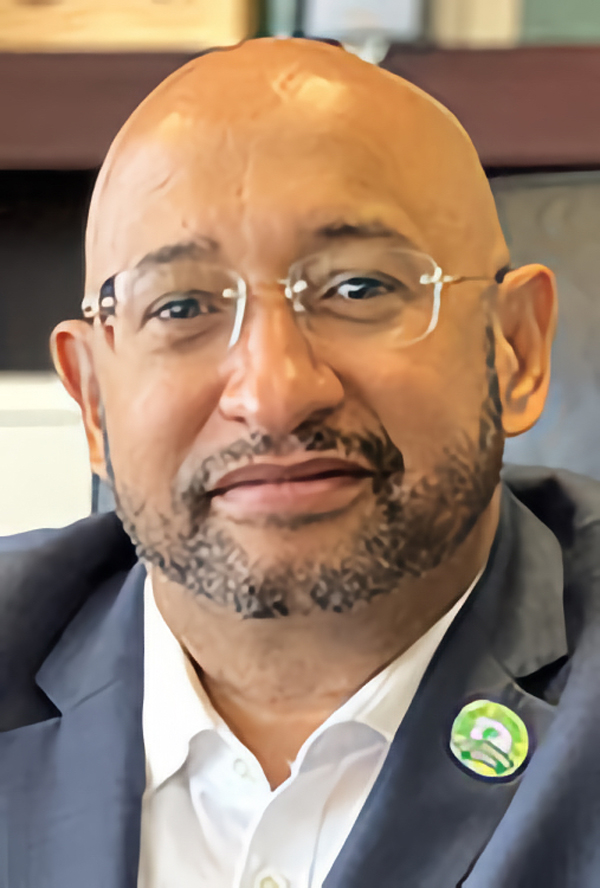A number of young, recently-arrived families seeking asylum are living in a north Brooklyn hotel with few resources and not much support.
“We’re seeing thousands and thousands of people coming in for weeks and months, and we don’t have the resources that these families need,” said councilmember Crystal Hudson, who visited the shelter — the exact location of which she asked not be shared for the safety and privacy of the familes staying there — unannounced on Friday.
Inside the shelter, resources are scarce
Just before the first day of school on Sept. 8, school leadership at P.S. 9 The Sarah Smith Garnet School in Prospect Heights found out 25 students who had recently arrived from Venezuela would be enrolling at the elementary school.
School administrators and members of the Parent-Teacher Organization quickly made contact with the families of the students, said former PTO president Jessica Flores, and learned where they were staying. Flores had seen the news about Texas governor Greg Abbott sending buses full of South and Central American immigrants to New York, but didn’t connect the dots until she met some of the families, she said.
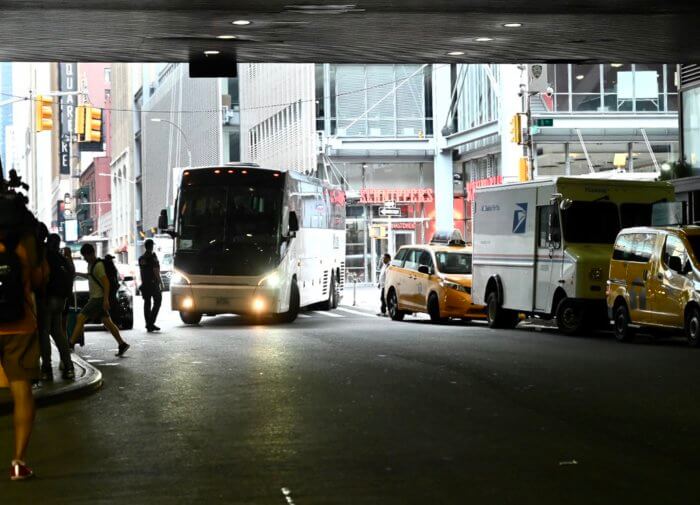
As the new students settled in at P.S. 9, Flores reached out to Hudson’s office to let her know the families had arrived in her district. On Sept. 23, Hudson and her fellow councilmember Chi Ossé decided to visit the hotel. As councilmembers, Hudson and Ossé have the right to visit any city shelter without warning.
Hudson called the commissioner of the city’s Department of Social Services, which includes the Department of Homeless Services, just before she walked into the hotel on Friday morning, she told Brooklyn Paper. He was “welcoming and inviting,” she said, and called shelter staff to tell them to admit the politicians.
The hotel was quiet, Hudson said. Most of the children were at school, and their parents were out trying to find jobs and other resources. Families had to wait until school started to begin the job hunt, she said, because childcare is not available to them.
“The only common area is where they get their meals from, it’s all microwaved meals, there’s no full kitchen at this particular facility,” Hudson said. “Some food was recognizable, I would say, and other meals were completely unrecognizable. I asked them if what I was looking at was meat and they assured me it was, but I wouldn’t put my money on it.”
Diapers and formula are in short supply at the shelter, she said, and are much-needed. One family at the shelter has a four-month-old baby they are struggling to feed, Flores said, and families say they are not getting enough food.
The community has “totally mobilized,” Flores said, and have raised money, compiled lists of needed items, and even connected with local restaurants, who have donated a number of dinners. PTO members keep in touch with the families at the shelter via WhatsApp, and have been connecting them with food pantries.
“They don’t have any access to refrigeration, so we can’t give them food to store overnight, or that needs refrigeration, and they have no way of reheating their own food, because there are no microwaves in the room,” she said. “Any assistance that they’re getting, they can’t just go to the store and buy something to make or reheat or cook because they have no ability to do that.”
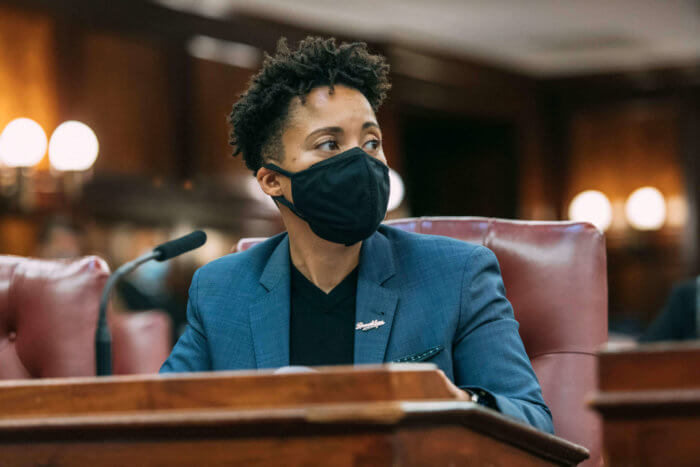
When Flores and the school first got in touch with the newly-arrived parents earlier this month, they were simply sending them the names of local organizations who could provide more in-depth assistance, she said. They had been told the students and their parents would be getting help from the city, the shelter operator, and social workers.
But it quickly became clear the families were falling through the cracks — one morning, the school bus didn’t come for some of the students, so they walked more than a mile to the school. They arrived “parched,” Flores said, because the shelter hadn’t given them any drinking water.
“It turned out that they really weren’t being helped, they weren’t being connected with all of the resources that could be available to them,” Flores said. “And we started to step in on a larger level, trying to do that work for them.”
Social services scramble to house asylum-seekers
There are more than 10,000 asylum seekers currently staying in city shelters, a DSS spokesperson said, and more than 1,000 have been placed in the last week alone. In August, 14 hotels were being used as emergency sites — as of Sept. 26, the city was operating 39 emergency shelters and is looking for more, the spox said.
As of Sept. 21, there were more than 11,000 families with children in the city’s shelter system, according to city data. That number has been steadily increasing since June — for the first six months of the year, about 8,000 families were staying in shelters. On Sept. 22, Mayor Eric Adams announced the city would be opening “Humanitarian Emergency Response and Relief Centers,” for recently-arrived asylum seekers.
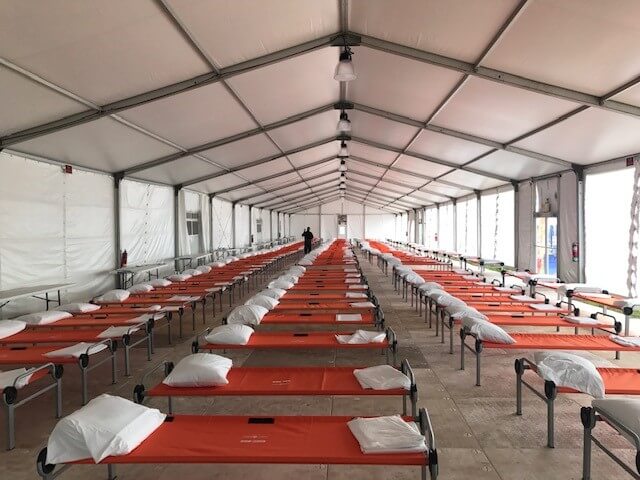
The centers, which feature dorm-style beds in large tents, will connect migrants with resources and services and provide short-term shelter as migrants are placed in more permanent housing, according to the mayor’s office. The first, which will house single adults, is expected to open in a parking lot in the Bronx.
“It puts a greater strain on the shelter system that was already strained … that being said, we need to do better and we need to do more for these folks,” Hudson said.
Her office will be taking donations for the families with a special emphasis on baby supplies and warm clothing. Shelf-stable milk, strollers, and over-the-counter medicines like ibuprofen and children’s Tylenol are also needed, Flores added, as are pads and tampons, band-aids, deodorant and baby wipes.
The students would also enjoy toys like Legos, small cars and trucks, Barbie dolls and stuffed toys as well as Spanish-language books for all ages.
Flores criticized the city’s response so far, asking how the Adams administration is monitoring the money being spent at emergency shelters.
“We just don’t know how this money is being spent, because we’re not seeing it on the ground at the temporary shelter where our shelters are located,” she said.
The Prospect Heights elementary school has a dual-language program, Flores said, and every Venezuelan student was placed in a classroom with a Spanish-speaking teacher. Some parents gave up their children’s spots in the program to ensure the new students could work with a teacher who speaks Spanish.
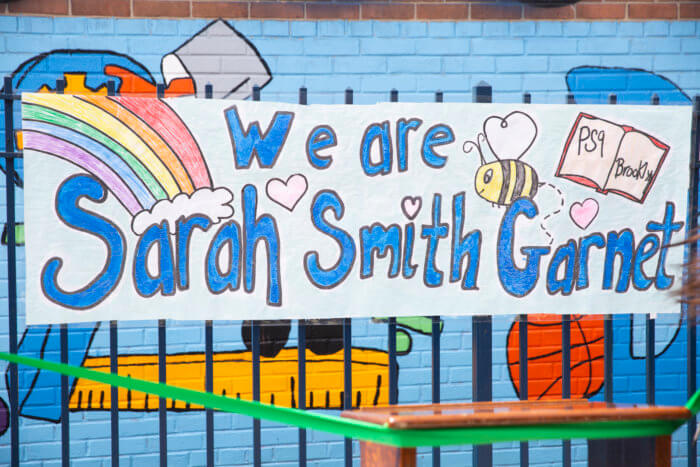
A P.S. 9 parent is spearheading an effort to connect the families with mental health professionals, Flores said.
“There needed to have been more support for the office staff inside the schools to help them deal with the parents, with their questions,” Flores said. “I don’t know how other schools that don’t have a dual-language program or have a lot of Spanish-speaking families that are able to volunteer their time are managing.”
Schools that receive an influx of new students are eligible to apply for additional funding through the city’s Department of Education, a spokesperson told Brooklyn Paper, and every school will receive a mid-year budget adjustment, which will account for any changes in enrollment and the needs of a school’s student body.
In August, Adams and DOE chancellor David C. Banks announced “Project Open Arms,” an inter-agency plan to support educational and social-emotional support for asylum-seeking students enrolled in public schools and their families.
“New York City is committed to welcoming individuals and families seeking refuge and liberty, which is why our staff has been on the ground every day helping to connect new arrivals to resources,” said Manuel Castro, commissioner of the Mayor’s Office of Immigrant Affairs, in August. “With the start of the school year approaching, we are prepared to assist families entering the school system, providing a broad range of supports, including language access and legal services, in close collaboration with agency and community-based organization partners.”
As of Aug. 18, the city estimated that 1,000 students seeking asylum would be enrolling in the city’s public schools.
“One of the things that would be nice to see offered is … Spanish language social services for the kids and for the parents,” Flores said.
School administrators have had calls with DOE representatives who are “trying to wrap their hands around” how many students need help at each school so they can allocate people and resources, she said.
“So that is happening, but the kids have already been in school for two weeks,” Flores said. “Now that they’re sort of settling in, there’s bound to be needs that have to be met in that respect.”
‘We want them to build a life here’
The parents and administrators have been happy to do the work and welcome the new families with “dignity and joy,” Flores said, but the effort is not sustainable — nor are the living conditions at the shelter.
“Here we have these lovely families who are stuck in a shelter … they can’t even go visit each other in each other’s rooms,” she said. “They are not able to use any of the communal spaces. They remain in their rooms.”
State Sen. Julia Salazar said on Twitter that poor conditions at a Williamsburg shelter had pushed some asylum-seekers staying there to leave and walk all the way back to the DHS intake center in the Bronx.
Due to mismanagement/neglect, conditions are bad in a DHS shelter on Cook St where asylum-seekers have been sent.
At the shelter in Williamsburg, families have witnessed violence; some felt so unsafe that they left the shelter to walk all the way to the Bronx PATH intake center.
— Julia Salazar (@JuliaCarmel__) September 24, 2022
Other people staying told Gothamist they are not allowed to speak with one another inside the shelter and feel isolated and lonely — especially since most of the staff do not speak Spanish.
Flores, a mother of two, said she “couldn’t imagine” not being able to make her children a bowl of oatmeal or a pot of rice as a small comfort after trauma.
“This has now been a month, and yes, they have a warm place to stay, and god knows what’s going to happen with the newest waves when they’re talking about putting people in tents,” she said. “I want to [say] how wonderful the Prospect Heights community has been, and how warmly received our new neighbors are. And we want them to stay. And we want them to be able to build a life here.”
To donate, contact councilmember Crystal Hudson’s office at (718) 260-9191 or visit her district office at 55 Hanson Place between Fort Greene Place and South Elliot Place in Fort Greene on Monday-Thursday, 9am-5pm.
Correction Sept. 28, 2022, 1:44pm: A previous version of this story said Jessica Flores is the current president of the P.S. 9 PTO. Flores is the former president, but is stil working with the PTO and with the families staying at the shelter.


